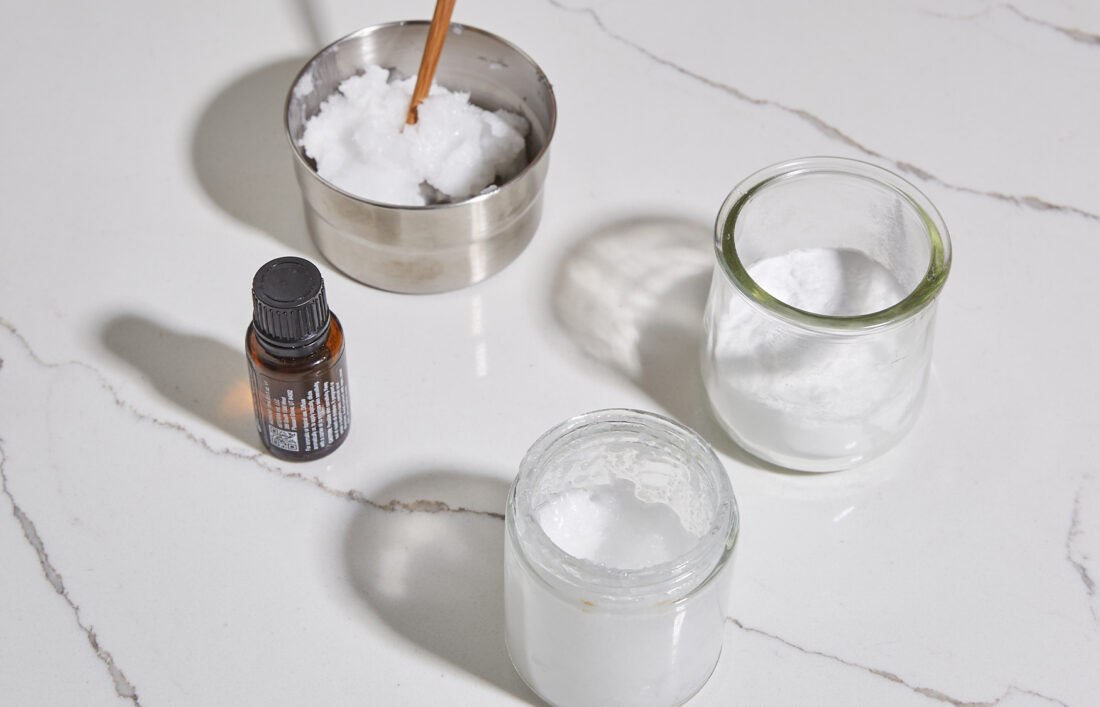
I haven’t purchased toothpaste in years, and yes – I brush my teeth! How is this possible? I make it myself.
When I transitioned to a Zero Waste lifestyle over four years ago, toothpaste was the first product I stopped buying and started making. The ingredients are simple and easy to find at almost any store: baking soda, organic coconut oil, and organic essential oils. It takes no more than 2 minutes to combine these three ingredients, and the toothpaste leaves my mouth feeling so incredibly fresh— way fresher than storebought toothpaste. Psst, you can find my Zero Waste toothpaste recipe here!
But let’s take a step back… why did I make the switch from “conventional” packaged toothpaste to one that I make myself?
The Packaging:
For starters, I live a Zero Waste lifestyle and toothpaste tubes are totally wasteful. They are typically sold with not just the tube, but a box as well. While the box is recyclable, the tube is very difficult or impossible to recycle and will most likely end up in a landfill. The benefit of making my own toothpaste is that I can put it in a glass jar or stainless steel container that I can wash and reuse infinitely. No plastic tubes, no trash, no landfill.
The Ingredients:
I like to have control of what I am putting on and in my body. There has been a lot of controversy around the ingredients that are in conventional toothpaste. Two that I will focus on are triclosan and sodium lauryl sulfate, but conventional toothpaste also contains fluoride, propylene glycol, and sodium hydroxide, all of which are controversial because they are linked to cancer and a long list of other ailments.
Triclosan: A chemical added to many products to reduce bacterial contamination which is also used in toothpaste to prevent gingivitis,according to the FDA and toothpaste manufacturers.In addition, it has been said to be potentially carcinogenic and have negative effects on the endocrine system in animals. It is banned in certain applications in Europe and in 2011, some of Colgate’s soap products were reformulated without the chemical, but not their toothpaste. The ecotoxicology of the ingredient is still under heavy scrutiny and EWG rates it to have a moderate/high health hazard. That’s all I needed to hear to make the decision to stay clear of it for good.
Sodium Lauryl Sulfate (SLS): Is a surfactant (a foaming agent that lowers the tension between two liquids or a liquid and a solid) used in toothpaste to evenly disperse the ingredients and help with effective rinsing and removal of mouth debris. It also promotes foaming. Many studies on SLS show that it is contaminated with 1,4 dioxane, a byproduct of the manufacturing process, which is also a possible carcinogen. SLS is also said to aggravate gums. No, thank you.
If something has a supposed risk, I will avoid it until I have concrete evidence that it is safe. This is why I choose to make my own toothpaste with just three ingredients that I trust and buy packagefree: baking soda, organic coconut oil, and organic essential oils.
The Savings:
Toothpaste can cost anywhere between $1-$8 for a 6oz tube depending on the brand you are buying and where you are purchasing it from. In my experience (purchasing ingredients in NYC), I have spent at most $.60 for 6oz of toothpaste. All aside, the cost savings alone are worth it.
With so much to gain and not much to lose, making your own toothpaste makes sense! It’s cheaper to make, tastes better, feels better in your mouth, and is better for you.
See for yourself – learn how to make my Zero Waste toothpaste by checking out this video or by following my favorite recipe.
Repurposed from this post on EcoWatch.com
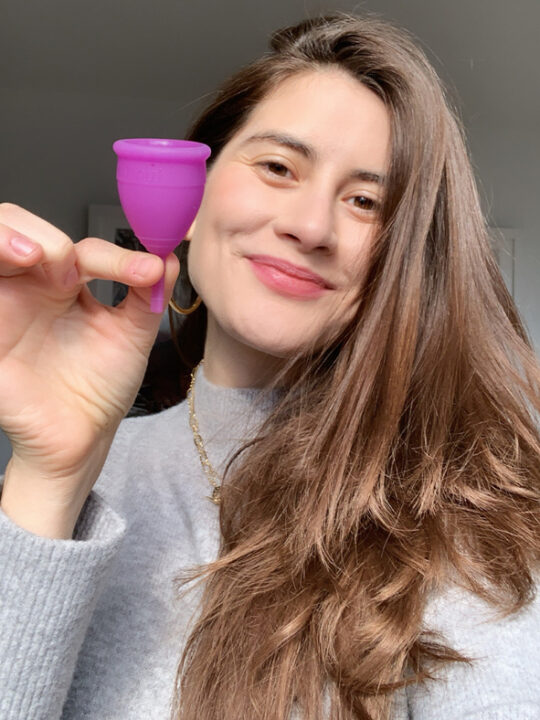
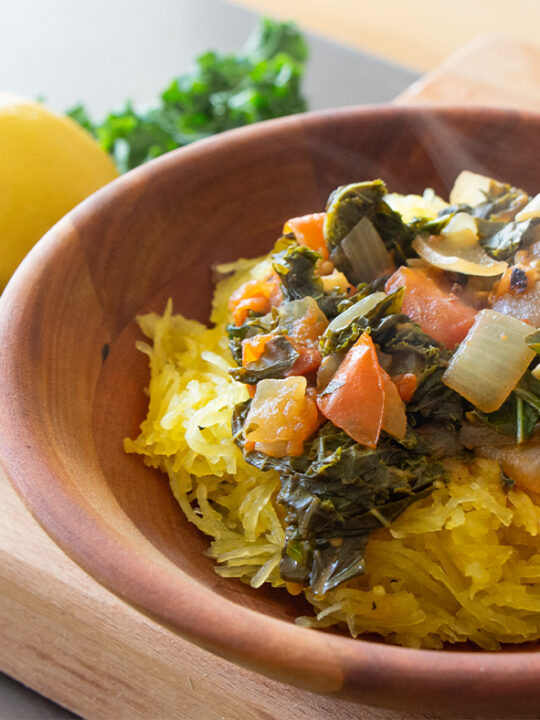
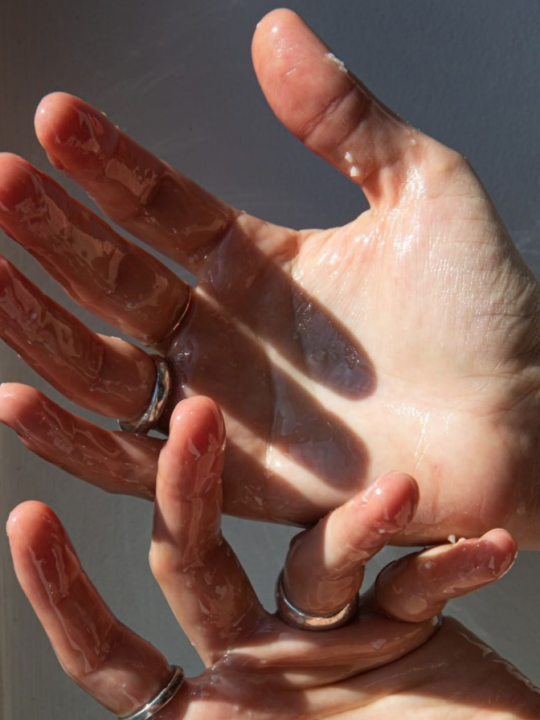
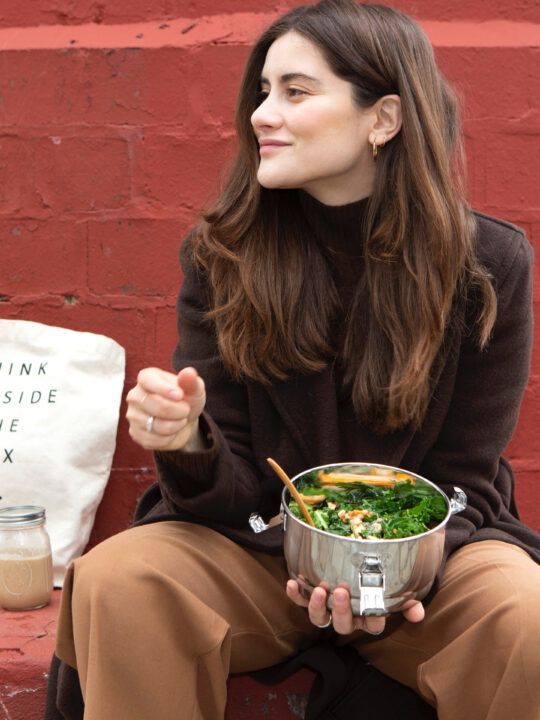
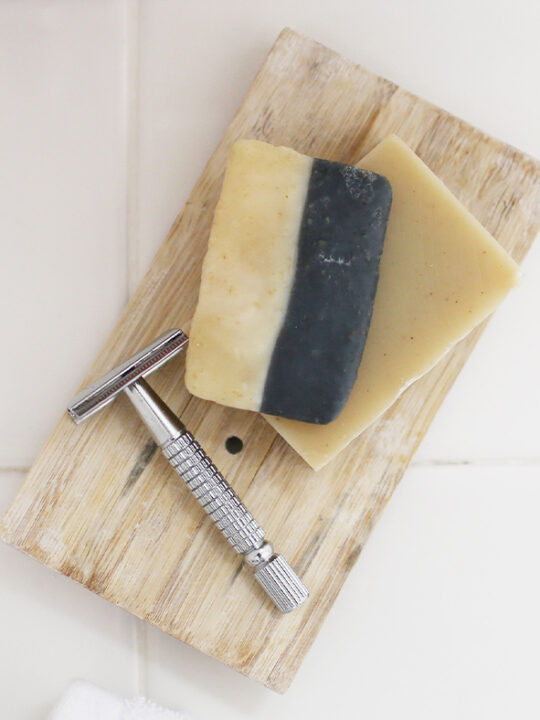
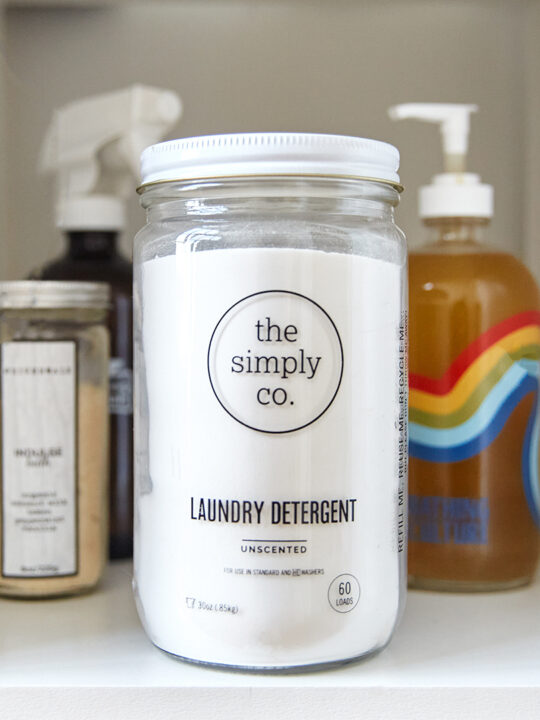
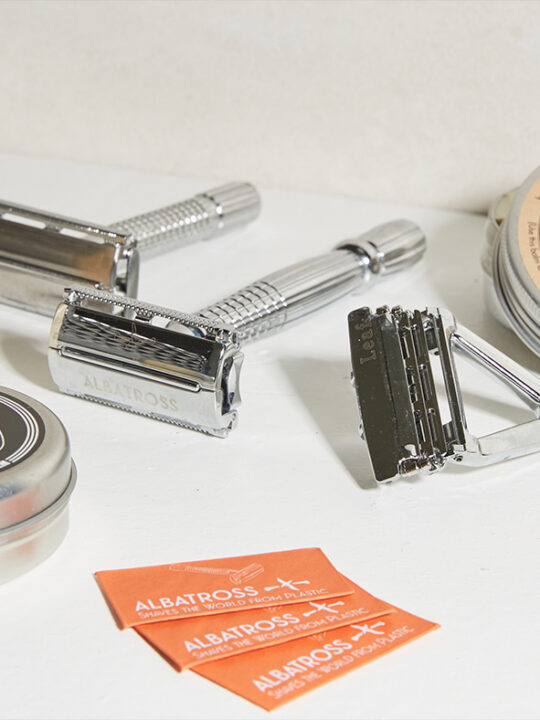
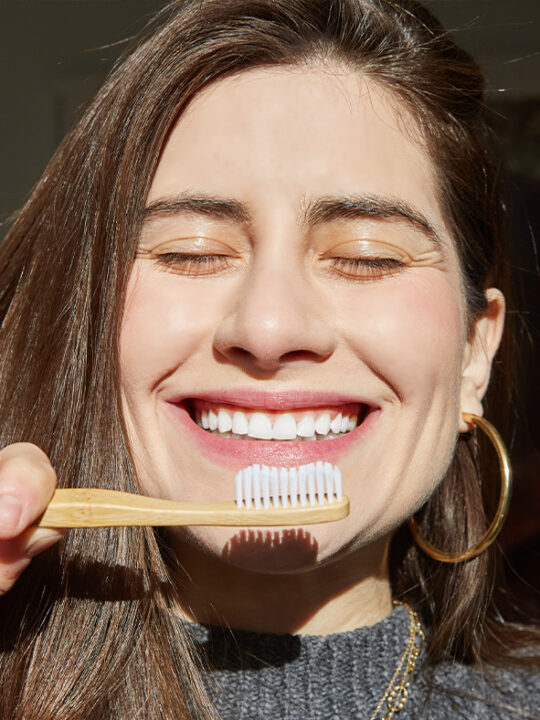
45 comments
Hello good day Lauren , sorry , I have a question .
I've been researching this method to brush my teeth , because I did and I loved it .
But I read it wrong washing three times a day , especially daily with baking soda .
How often do you wash your teeth?
I would feel safe when I wash me , now I am in doubt .
Mexican I'm from Guadalajara , Jalisco, and I 'm starting my transition , and I 'd appreciate respondieras .
Regards, is wonderful the way you live.
Greetings and 're a great person . 🙂
@Georgina Sanchez Vega: I read the same, apparently frequent washing with baking soda is harmful to your teeth's protective layers. This concern however exists for washing your teeth with baking powder ONLY. This recipe consists of much less baking powder and I have been brushing my teeth with this paste for a couple of month now.
I DON'T USE DEODORANT NEITHER, I PREPARE IT.
Hi Gladys, is it possible you can share us tour deodorant recipe, i've been looking for one bit nothing that convince me in the web yet, thanks.
I use a mix of equal parts coconut oil, baking soda, and corn starch. 🙂
Straight coconut oil works, also lime juice!
Hi! I also would like to know your recipe, I exercise a lot so I also sweat a lot, and until now I haven't find a recipe that works well for me :/
Hi,
I also live in NYC and would like to know where you buy package free coconut oil and baking soda?
Thanks!
I've been making my own toothpaste as well for the past couple of months and have noticed my mouth is especially dry after using it. Would adding more coconut oil solve this issue? Thanks!
You can try coconut oil pulling. Hope that helps!
Do you have a toothpaste recipe that uses clay? I've heard a lot of people talk about using clay in their toothpaste or toothpowder but I haven't found any recipes? Is there any actual benefits to using clay?
I really love that recipe but I live in Chile and here organic coconut oil is so expensive. Do you have an alternative oil for coconut? Thank you!
Paixai, you can use sesame seed oil. Hope that will work for you!
Also living in Chile and buying organic coconut oil from KNOP pharmacies. Half a kilo costs 10,000 Ch$, not that expensive in my opinion (less expensive than the fake coconut oil you can buy in other pharmacies to wash your hair if you calculate it according to volume). It will last you for at least half a year, only using it for making toothpaste, I suppose.
I love this recipe, and have been wanting an alternative to store-bought minty toothpaste, but I have a question: organic coconut oil is liquid at room temperature here, and my teeth are sensitive to cold, so is there another way to make a zero-waste toothpaste? Thank you!
Dear Lauren, thanks for the recipe. As Georgina asked, I'm also a little bit worried about the use of the baking soda. A friend told me that this material is abrasive and could hurt your gums if you use it frequently like three times in a day. I bought a baking soda able to alimentary, but I'm still afraid, ¿any advice? Thanks again.
😀
I'm interested as well by the respond to that ! Thank you
Dear Lauren – thanks for this zero waste toothpaste recipe. It looks super simple to make and I plan to start using it right away! I was wondering, do you floss your teeth and, if so, how do you do so with zero waste. Would love to know. Thanks.
Dear Lauren – thanks for this zero waste toothpaste recipe. It looks super simple to make and I plan to start using it right away! I was wondering, do you floss your teeth and, if so, how do you do so with zero waste. Would love to know. Thanks.
I'm curious about the essential oil. Is it just there as a flavoring, or is there another purpose for it?
I love this recipe! but I'm not sure: do I have to leave it in the fridge or can I have it outside in the bathroom?
I have read that using coconut oil in the sink is not great for the pipes as it can build up and mess up the septic system. Anything you know about this at all?
I’ve been thinking the same thing too!
I guess the only way to do it is to avoid spitting directly into the sink by using a cup or something else instead.
My 10 year old daughter tells me to write you that YOU ARE GREAT and I totally agree!!! We have just made our first toothpaste together (one with lavander oil and anonther with lemon oil – the only 2 we had at home) and it was 1) super easy to make and 2) we had a lot of fun brushing our teeth afterwards. The mouth feels fresh and the teeth very clean. Thank you so much for sharing – I admire you attitude! Bisous from France!
Hi! I love your blog and I think that you are doing a fantastic job sharing all this with the people!! I am from Seville (Spain), although it is a little bit difficult to live a life like yours here, I try to do as much as I can because I think it's great (and necessary for the environment)! Thank you very much!
R
How do you store the toothpaste? Is it to be stored room temperature, or refrigerated? Also, how long does this stay good for?
El Flúor contamina tu cuerpo.
I have done it, a bit salty, I hope its correct? I used (as I live in Germany), natron (baking soda), and eucalyptus oil with the coconut oil, same proportions. any advise?
Awesome! What about floss? Have you found one that isn't made of nylon and comes in recyclable packaging?
How do you avoid the coconut oil going rancid? Do you use a fresh spoon to scoop it out each time you brush you teeth?
Hi Lauren,
I tried using this toothpaste recipe for about a month. While the texture did not bother me at all, I noticed that usually about halfway through the day my teeth felt kind of fuzzy and dirty (like I hadn't even brushed them). I would really like to stick with a homemade recipe, do you have any tips or suggestions?
Running your paste under water for a few minutes is a waste of water! Please consider highlighting this.
When the paste gets solid, you can scratch the surface with a spoon and put it on the brush. It will melt as soon as you put it in your mouth. Try to spare water and also energy to hot it. Thank you.
Hi how can i stabilize my toothpaste to enhance shelflife and sell to friends.
Regards
Hi,
and I’m sorry I’m leaving a comment to such an old post BUT I’ve been thinking about toothpastes A LOT… I would like to switch from the “conventional” paste to a more environmentally friendly option but the effectiveness of an organic paste is a question that I don’t think has been truly answered. Don’t our teeth need fluoride to develop a harder enamel? I mean I do know fluoride has a lot of negativity around it and it has at least to some extent been proven to be the cause of different symptoms such as stomach aches, migraines and so on, but are there really any cavity-preventive effects in the paste that contains only coconut oil and baking soda? The coconut oil keeps your gums hydrated and the baking soda dissolves some of the food stains in your mouth, but is this enough? From what I’ve read, the problem is in the food we eat these days. All of the white sugar and white wheat we eat does baaaad things to our mouth (and health in general), but in case you sometimes want to eat say, candy or fast food, is the organic paste really enough to protect our teeth and our health in general? Is the coconut+baking soda paste really effective only if you eat organic, simple, pure food?
I hope you understand my concerns. And please prove me wrong! I want to stop giving my body fluoride, but at the same time, I’m worried that the organic option might not be enough to protect my mouth.
Thank you for an amazing blog, I’ve really started to think changing my habits more concretely because of your great tips!
Hi,
I don’t know about the components of a toothpaste, but what I’ve always heard is that the important thing is to brush your teeth, even without toothpaste, so I’m guessing here that the lack of fluoride won’t be a problem.
Of course I can be wrong and I’m curious too, but not worried 🙂
coconut oil is antibacterial, no need for fluoride there are other ways to build up your teeth naturally.
Hey! Yes fluoride is really important if you want to keep your teeth until your old age! But likely there is a lot of fluoride in your municipal drinking water which is enough to keep your teeth strong! Brushing is to remove plaque and the paste is really just to lubricate the brush
Hi I finally decided to prepare some toothpaste following your recipe and give it ad Xmas present to my friends and relatives.
I found nice mini glass jars to put it into, and I was ready to give it a go.
The point is that I found coconut butter (not oil) which is harder than usual butter. I had to put it into the microwave for 10-15 secs to make it of the right density in order to mix it with baking soda and essential oil.
Once back at its normal, room, temperature, my newly made toothpaste looks harder than what you show in your video.
I gave it as Xmas presents anyway but I doubt it is of some kind of use as it is. I mean, you would use it only IF you really really want to since it requires much more effort than a usual toothpaste.
So, does anyone can help me with the coconut butter ingredient? Does anybody experienced the same?
Thanks
Don’t bother to comment people cos she will not reply to your comment.
Yo